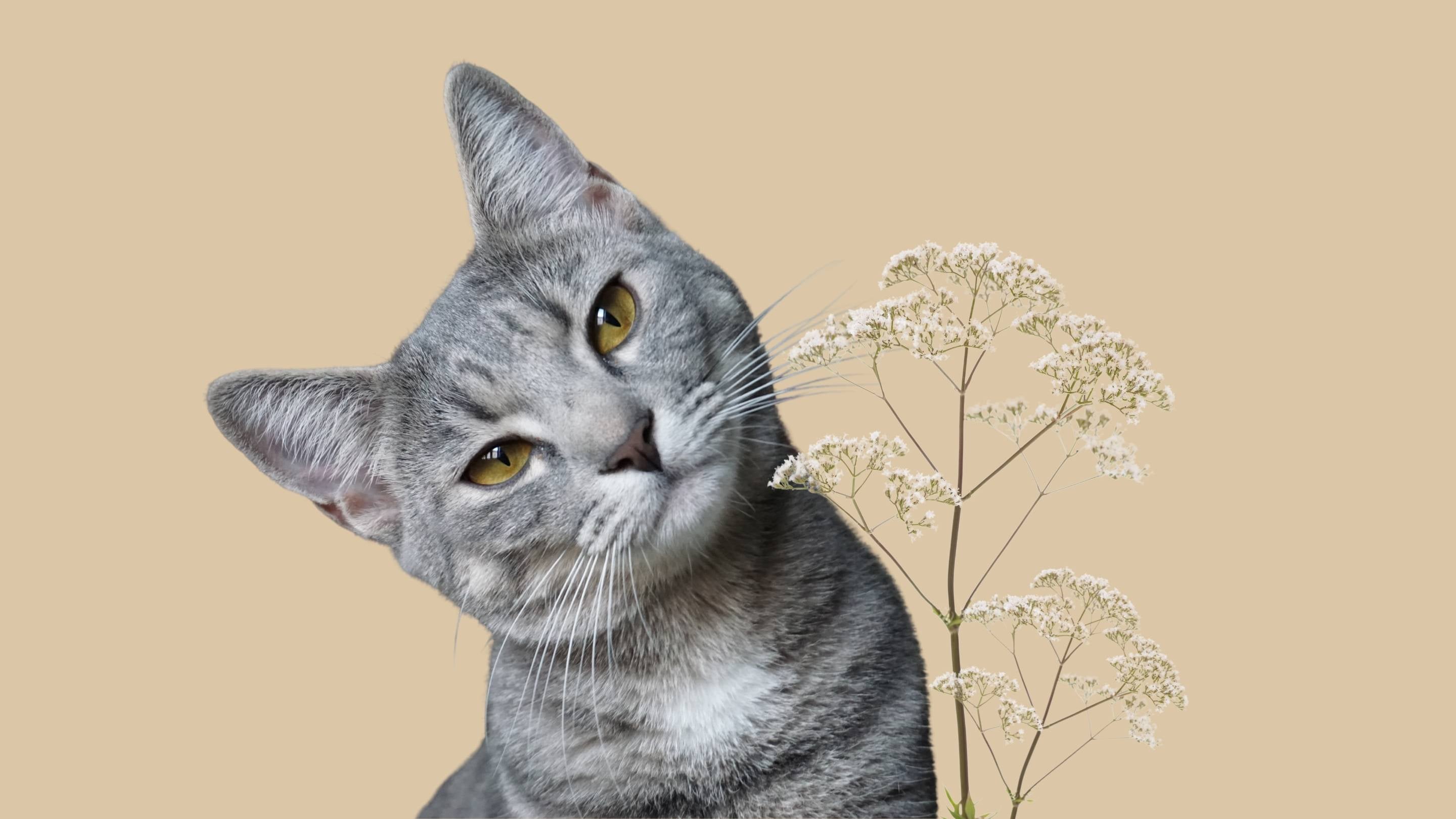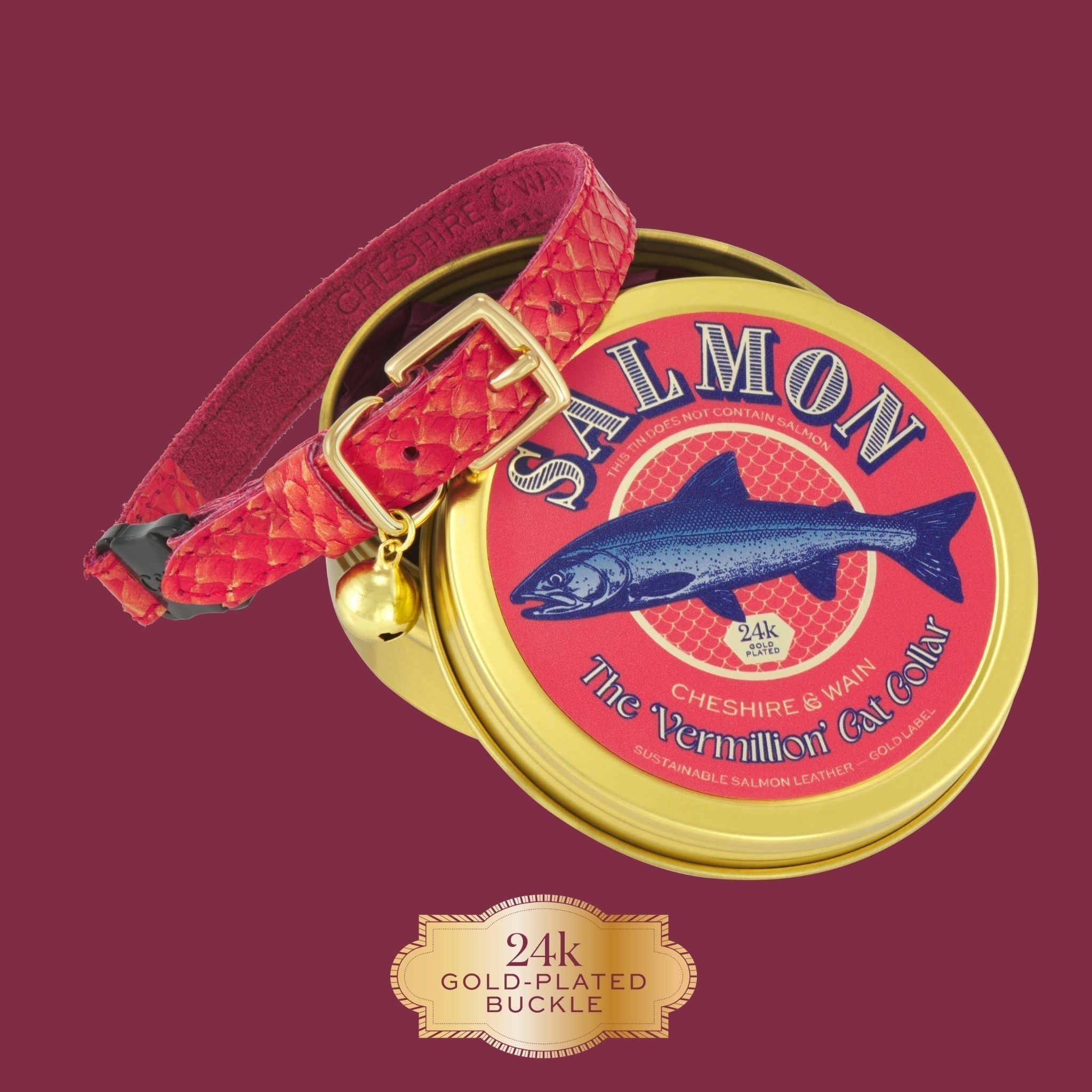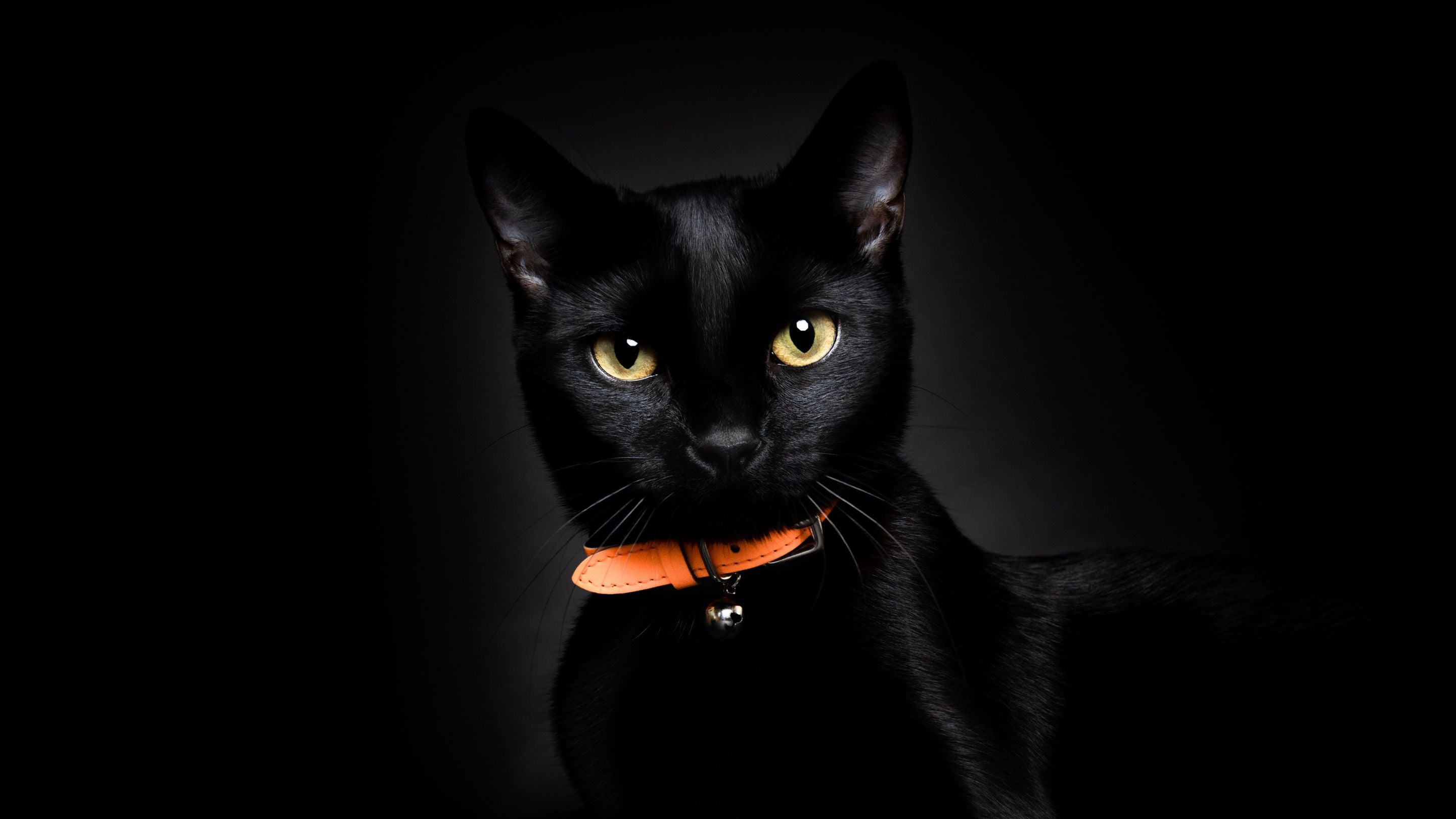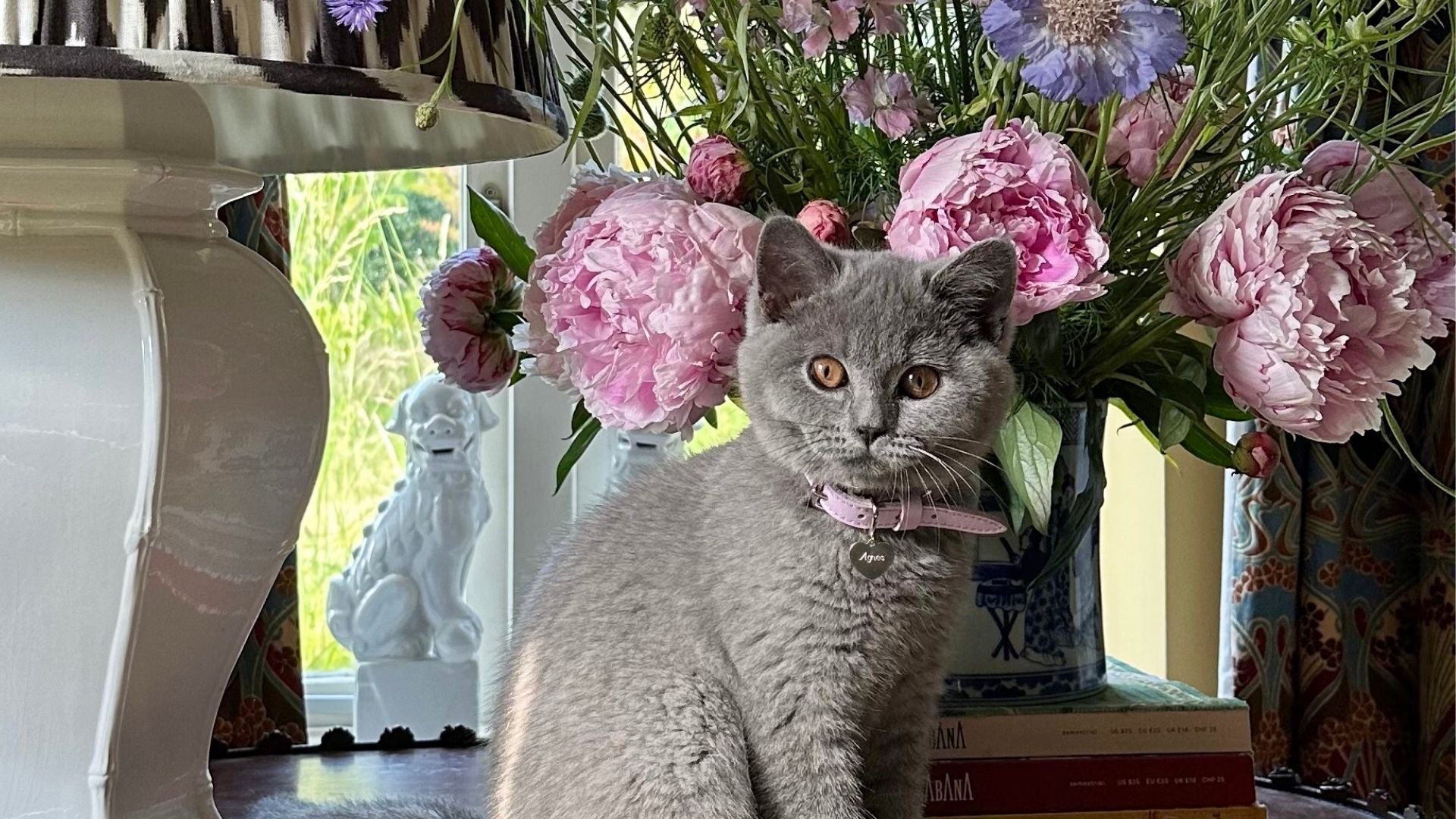When we discuss valerian for cats, we are specifically discussing the root of this plant, which is native to Europe and north Asia. Despite the smell being strong, if your cat didn’t inherit the catnip gene, valerian could be your best alternative!

The name also derives from the Latin ‘valere’ which means to be well, being used for centuries to enhance our wellbeing, and our cats too!
Is valerian the best alternative for my cat?
Around 30% of cats do not respond to catnip, but there are still plenty of natural remedies out there for these felines to find their match. Cats who are often not responsive to catnip may prefer valerian.
Valerian root contains actinidine, a compound that acts as a stimulant for some of our feline friends. It causes mental stimulation as well as an increase in exercise, but can also leave your cats with an overall calm and relaxed aura. The best way to see if valerian is right for your cat is to try!

Like catnip, either fill a resealable toy with dried valerian root, try our Valerian Cloud Toy or sprinkle about a teaspoon over their play area. Valerian is typically coarsely chopped into small pieces to release a stronger scent, so a little sprinkle goes a very long way.
Is valerian safe?
Absolutely, as long as you administer it in safe quantities, which equates to roughly a teaspoon. If you are cautious, start with half a teaspoon and build up slowly. It is safe to smell and ingest in small amounts used in play.
It is also useful to note that valerian cannot be metabolised by your cat, which makes it impossible to overdose or become addicted to.

Do not give your cat valerian supplements meant for humans however, as the dosage may be too strong and have ingredients that are harmful to our furry friends.
Why does my cat not respond to valerian root or catnip?
Cats have a highly developed sense of smell, which means they are capable of detecting stimulants and pheromones that we cannot.


This means that a cat is either born with or without the mendelian-dominant gene needed to determine whether a cat is responsive or not. A majority of ⅔ of cats have this gene, which still leaves around 30% of cats as genetically non responsive.
If this is the case, don’t be disheartened. Not only are there other herbal stimulants out there, but teaser toys may be your best alternative for play.
What are other alternatives to valerian root?
Silvervine and tatarian honeysuckle are the two other herbs most researched in feline responsiveness after catnip and valerian.

In a 2017 study by BMC Veterinary Research, nearly all domestic cats responded positively from exposure to catnip, valerian, silver vine and tatarian honeysuckle. Almost 80% of cats responded to silvervine and around 50% to tatarian honeysuckle.
When exposed to silvervine, like catnip, cats are often in a euphoric state and this response can last up to half an hour! A plant native to the mountainous regions of eastern Asia, it has been used for centuries as a catnip alternative in Japan and China.
Tatarian honeysuckle and silvervine, like valerian, contain the compound actinidine, which acts as a stimulant. Honeysuckle is a wood which can be presented as the perfect natural toy for your cat, and can be more effective for kittens due to their inability to respond to the stimulant oil (nepetalactone) found in catnip until after puberty.







Share:
What is Catnip? And why does my cat love it?
Does my cat need an ID tag?